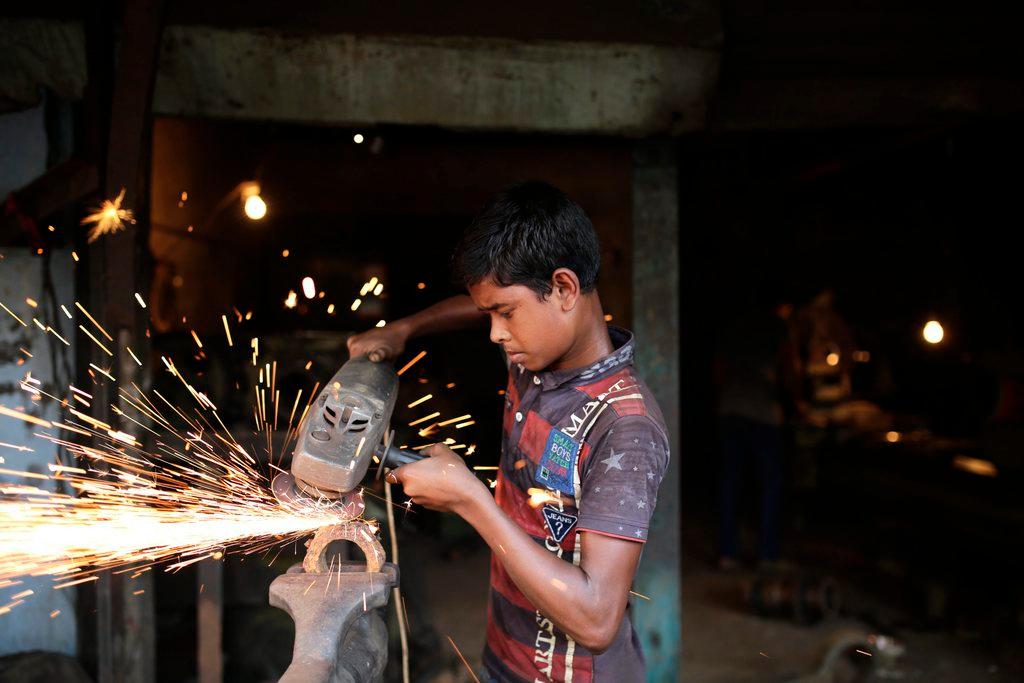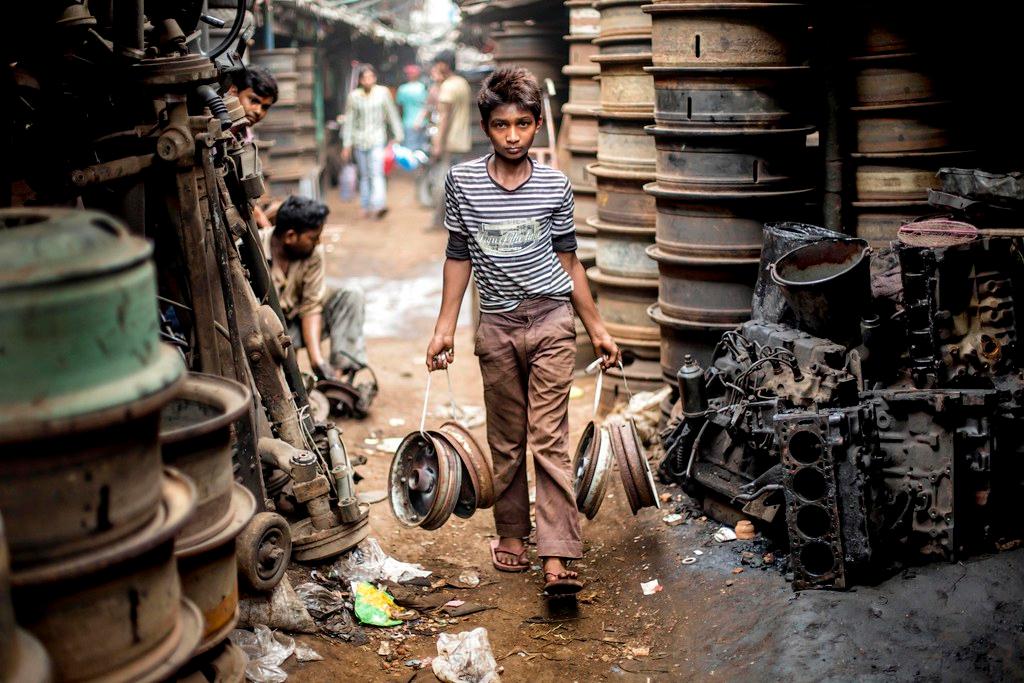
Ranking finds big companies fail to manage human rights risks

Most big companies fail to demonstrate respect for human rights, according to an analysis of more than 100 companies released on Monday. Nestlé and Glencore, the two Swiss companies in the ranking, fall in the middle of the pack.
The ranking, developed by Corporate Human Rights Benchmark (CHRBExternal link), a UK-based organisation backed by several investors and governments including the Swiss Federal Department of Foreign Affairs, showed major lapses in the management of human rights risks including child labour and forced labour.
Almost two-thirds of firms scored less than 30%, with an overall average of 27%. This represents an improvement on 2017, when the average score was 18%, but the report states that the results are still “deeply concerning” and raise questions about how serious companies are about “avoiding harm to people in their pursuit of profits”.
More than 40% of the companies scored no points whatsoever on human rights due diligence – the practice of identifying and addressing the risk of abuses.
Human rights due diligence has been one of the expectations put forward in the Responsible Business Initiative currently being debated in the Swiss parliament. More governments including France and the Netherlands are mandating human rights due diligence in part out of skepticism about the impact of voluntary initiatives to push companies to change practices.
Best and worst performers
Vevey-based Nestlé came in fifth best out of 38 agriculture companies while the other Swiss-based company on the ranking, commodity giant Glencore, was ranked 12th out of 41 firms. The latter has been at the centre of several corruption scandals recently, including accusations (by Public Eye and Global Witness) of involvement in the Brazil Car Wash corruption scandal.
Overall, sportswear company Adidas came out on top with 87% followed by two of the largest mining companies, Rio Tinto and BHP Billiton. Liquor maker Kweichow Moutai and fast fashion brand Heilan Home, both Chinese companies, came in last. Starbucks, Prada and Hermes were also among some of the worst ranked companies.
The ranking assessed 101 of the largest apparel, agricultural and extraction firms using public information on practices and policies on issues such as transparency, forced labour and the living wage. It used 100 indicators based on the UN Guiding Principles on Business and Human Rights, as well as additional industry-specific standards.
The authors note that poor performance does not necessarily mean that bad practices are present or there is no company action on the issue, but could be that insufficient information is available.

More
Responsible Business debate could cause ripple effects globally

In compliance with the JTI standards
More: SWI swissinfo.ch certified by the Journalism Trust Initiative

























You can find an overview of ongoing debates with our journalists here . Please join us!
If you want to start a conversation about a topic raised in this article or want to report factual errors, email us at english@swissinfo.ch.